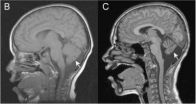(Press-News.org) Cold-blooded animals cannot regulate their body temperature, so their cells are stressed when facing temperature extremes. Worse still, even at slightly colder temperatures, some biological processes in the cell are slowed down more than others, which should throw the cells' delicate chemical balance out of whack. Yet, those cells manage to keep their biological processes coordinated. Now researchers from the University of Rochester and the European Molecular Biology Laboratory have found out how they do that.
"The production of proteins is a key process in all cells, and it is important to make the right amounts of each protein at just the right time," said Michael Welte, an associate professor of biology at the University of Rochester. "What we have discovered are factors responsible for keeping that process perfectly coordinated in at least one type of cold-blooded animal."
Welte and his team made their discovery while studying the internal mechanisms of the egg cell of the fruit fly, known as Drosophila.
Welte explains that the production of certain proteins takes place along a type of assembly line that carries raw materials from the nucleus to the posterior end of the egg cell, where these proteins are then manufactured. When temperatures drop, the rate at which the proteins are built slows down significantly more than the rate at which the raw materials are delivered—something that has the potential of throwing off the entire operation. What keeps the assembly line functioning—based on the new research—is a protein called Klar. It does that by slowing down the rate at which the raw materials are delivered, to match the rate of protein building.
The research findings were published today in The Journal of Cell Biology.
The protein assembly line consists of microtubules that serve as train tracks on which the raw materials—including messenger RNA (mRNA)—are carried to the protein-making machinery, called ribosomes. It's there that a protein called "Oskar" is produced. The role of Oskar is to mark the posterior end of the cell so that the future embryo forms its tail in the right place.
As temperatures decreased, Welte found that the protein-building process failed when Klar was removed from the egg cell. Only when Klar was present did the fruit fly develop properly.
Unlike fruit flies, humans and other warm-blooded animals do have a mechanism for adjusting internal temperatures. But Welte speculates that when internal temperatures do fluctuate in humans, as in the case of fevers, our cells may also need a way to coordinate the protein-building process. "While we don't have the Klar protein in our cells, the mechanism for producing proteins is very similar."
INFORMATION:
The research team included Yanxun Yu at the University of Rochester and Imre Gaspar and Anne Ephrussi at the European Molecular Biology Laboratory. Funding was provided by the National Institute of General Medical Sciences (NIGMS), which is part of the National Institutes of Health.
About the University of Rochester
The University of Rochester is one of the nation's leading private universities. Located in Rochester, N.Y., the University gives students exceptional opportunities for interdisciplinary study and close collaboration with faculty through its unique cluster-based curriculum. Its College, School of Arts and Sciences, and Hajim School of Engineering and Applied Sciences are complemented by its Eastman School of Music, Simon School of Business, Warner School of Education, Laboratory for Laser Energetics, School of Medicine and Dentistry, School of Nursing, Eastman Institute for Oral Health, and the Memorial Art Gallery.
When temperatures get cold, newly-discovered process helps fruit flies cope
2014-07-21
ELSE PRESS RELEASES FROM THIS DATE:
Scientists successfully generate human platelets using next-generation bioreactor
2014-07-21
Boston, MA – Scientists at Brigham and Women's Hospital (BWH) have developed a scalable, next-generation platelet bioreactor to generate fully functional human platelets in vitro. The work is a major biomedical advancement that will help address blood transfusion needs worldwide.
The study is published July 21, 2014 in Blood.
"The ability to generate an alternative source of functional human platelets with virtually no disease transmission represents a paradigm shift in how we collect platelets that may allow us meet the growing need for blood transfusions," said Jonathan ...
Refined biological evolution model
2014-07-21
Models for the evolution of life are now being developed to try and clarify the long term dynamics of an evolving system of species. Specifically, a recent model proposed by Petri Kärenlampi from the University of Eastern Finland in Joensuu accounts for species interactions with various degrees of symmetry, connectivity, and species abundance. This is an improvement on previous, simpler models, which apply random fitness levels to species. The findings published in EPJ E demonstrate that the resulting replicator ecosystems do not appear to be a self-organised critical model, ...
Iodine may alleviate swelling in retinitis pigmentosa patients' retinas
2014-07-21
Boston – Cystoid macular edema (CME) is a common complication of retinitis pigmentosa (RP), a family of retinal diseases in which patients typically lose night and side vision first and then develop impaired central vision. CME can also decrease central vision. Current treatments for CME in RP are not always effective and can lead to adverse results.
Researchers from the Massachusetts Eye and Ear, Harvard Medical School, and Boston University School of Medicine tested whether the extent of retinal swelling due to CME was inversely related to dietary iodine intake in patients ...
Missing sleep may hurt your memory
2014-07-21
EAST LANSING, Mich. --- Lack of sleep, already considered a public health epidemic, can also lead to errors in memory, finds a new study by researchers at Michigan State University and the University of California, Irvine.
The study, published in the journal Psychological Science, found participants deprived of a night's sleep were more likely to flub the details of a simulated burglary they were shown in a series of images.
Distorted memory can have serious consequences in areas such as criminal justice, where eyewitness misidentifications are thought to be the leading ...
Diagnostic criteria for Christianson Syndrome
2014-07-21
Because the severe autism-like condition Christianson Syndrome was only first reported in 1999 and some symptoms take more than a decade to appear, families and doctors urgently need fundamental information about it. A new study that doubles the number of cases now documented in the scientific literature provides the most definitive characterization of CS to date. The authors therefore propose the first diagnostic criteria for the condition.
"We're hoping that clinicians will use these criteria and that there will be more awareness among clinicians and the community about ...
Nearsightedness increases with level of education and longer schooling
2014-07-21
Education and behavior have a greater impact on the development of nearsightedness than do genetic factors: With each school year completed, a person becomes more nearsighted. The higher the level of education completed, the more severe is the impairment of vision. These are the conclusions drawn by researchers at the Department of Ophthalmology at the Mainz University Medical Center from the results of the first population-based cohort study of this condition. A nearsighted eye is one in which the eyeball is too long in relation to the refractive power of the cornea and ...
Heart disease: First Canadian survey shows women unaware of symptoms and risk factors
2014-07-21
OTTAWA, July 21, 2014 – A new survey, ordered by the University of Ottawa Heart Institute, shows that a majority of Canadian women lack knowledge of heart disease symptoms and risk factors, and that a significant proportion is even unaware of their own risk status. The findings underscore the opportunity for patient education and intervention regarding risk and prevention of heart disease.
Heart disease is a leading cause of morbidity and mortality in men and women. Our understanding of heart disease stems chiefly from clinical trials on men, but key features of the disease ...
Circumcision does not promote risky behavior by African men
2014-07-21
Men do not engage in riskier behaviors after they are circumcised, according to a study in Kenya by University of Illinois at Chicago researchers.
Three clinical trials have shown that male circumcision significantly reduces the risk of acquiring HIV in young African men. However, some experts have suggested that circumcision, if promoted as an HIV preventive, may increase promiscuity or decrease condom use. This 'risk compensation' could diminish the effectiveness of medical male circumcision programs.
The new study, published online July 21 in the journal AIDS and ...
Brain waves show learning to read does not end in 4th grade, contrary to popular theory
2014-07-21
Teachers-in-training have long been taught that fourth grade is when students stop learning to read and start reading to learn. But a new Dartmouth study in the journal Developmental Science tested the theory by analyzing brain waves and found that fourth-graders do not experience a change in automatic word processing, a crucial component of the reading shift theory. Instead, some types of word processing become automatic before fourth grade, while others don't switch until after fifth.
The findings mean that teachers at all levels of elementary school must think of themselves ...
Large twin study suggests that language delay due more to nature than nurture
2014-07-21
A study of 473 sets of twins followed since birth found that compared to single-born children, 47 percent of 24-month-old identical twins had language delay compared to 31 percent of non-identical twins. Overall, twins had twice the rate of late language emergence of single-born children. None of the children had disabilities affecting language acquisition.
The results of the study were published in the June 2014 Journal of Speech, Language, and Hearing Research.
University of Kansas Distinguished Professor Mabel Rice, lead author, said that all of the language traits ...


